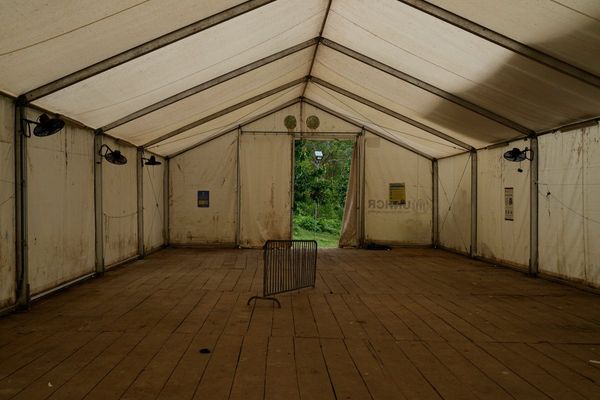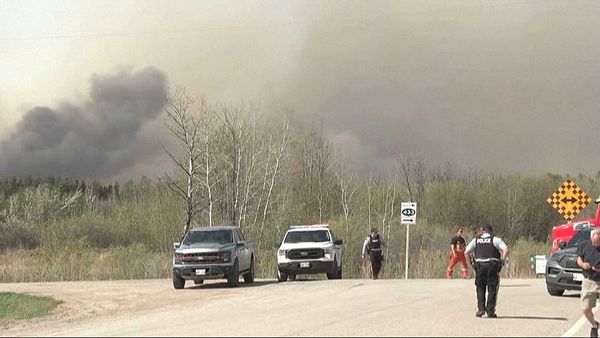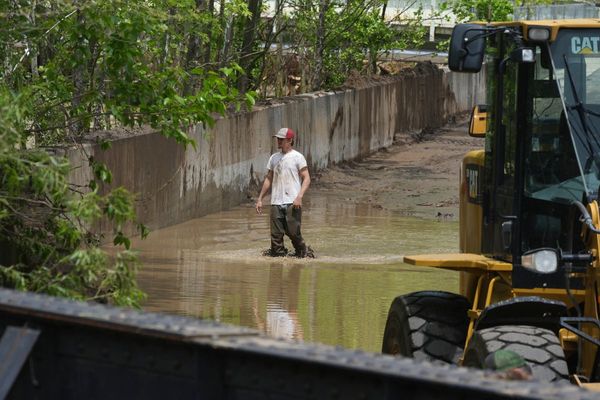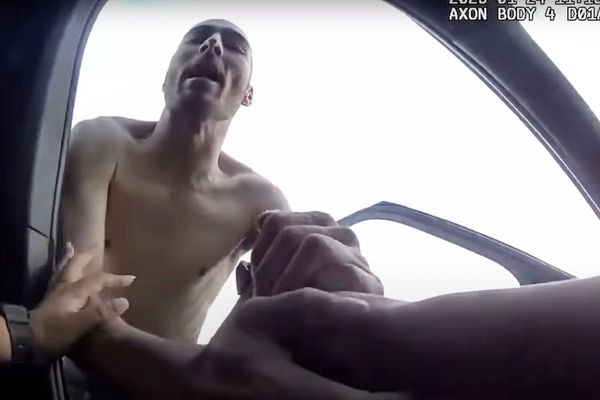Marcus Goodson remembers the good times at the Rosebery-Toorak Football Club.
"We played in the 1996 grand final — and should have won that one — [won premierships in] 1998 and 1999 and played in the 2000 grand final," he said.
But the glory days of the 1990s are a distant memory now for the Hawks, a team that is regularly beaten by hundreds of points.
The club is barely able to field two sides – reserves and seniors – each week.
"The last six years it's been going down and that's probably because of the mine – the roster they've got now, seven on and seven off, has made it even worse," Mr Goodson said.
Rosebery-Toorak is a club on the brink of survival, something he doesn't like to think about.
But a core group of players and volunteers are determined to keep the club going.
"I got too old to play and got a knee replacement so I umpire the reserves now," he said.
Senior coach, treasurer and secretary all in one
The club's survival can largely be put down to the dedication of people like senior coach Duncan Murfet.
The 450-game veteran is now in his 50s, and still playing.
He's also the club secretary and treasurer.
"There's one bloke that travels from Hobart, a few blokes that have never played football before, a few that have come out of retirement – if we can get them all together on one day we'd have a pretty good side," he said.
But the struggle of fielding a side is taking its toll.
"People have lives and the commitment that was there previously isn't there anymore," Mr Murfet said.
It means the gap in the North West Football League between the best and worst sides is widening.
"There's been some losses that have been 60 goals or close to it, but unfortunately those days we've been really short and most players have had to play reserves and seniors," Mr Murfet said.
"Only one side can win the grand final so if that's your gauge of success, there's only one team each year that has success.
Volunteers playing their part
Canteen manager Kristy Fellows has been with the club for 20 years.
"I was up till midnight last night and here at the ground at 6:00am this morning to get it all ready," she said.
"It's dwindled a little bit with numbers for footy and volunteers and it makes it pretty hard, but it'd be horrible if there was no football."
Then there's the club's trainer, Ray Masters.
At 70 years old, he joined the club just three years ago and almost has enough energy to be playing the game itself.
"The blokes give everything and get flogged every week and they still turn up and say thank you," he said.
"I'd rather come and help a club like this that's struggling than go to a club that's going to win the premiership."
Clubs hope for change, but population just isn't there
Chloe Streets's brothers play for Rosebery-Toorak, and she's hoping the club survives long enough for her children to have the same opportunity.
"It's a great way for them to grow up and to see the players' commitment and how they work together," she said.
But clearly the current situation – players playing eight quarters of football a day – isn't sustainable.
Joe Sucic has been club president for the past eight years.
He hopes an AFL Tasmania review being done this year into the state of football provides a positive way forward, but acknowledges there's no easy way to fix it.
"People are moving into other sports, and the casual workforce is getting bigger and if they're injured they can't work, so I think that's a real big factor," he said.
The decline of clubs on the west coast can in part be attributed to changes in the region's biggest industry – mining.
"Going back 30 years there were eight teams on the west coast and now there's two," Mr Sucic said.
"It's about the community, giving people something to do. There wouldn't be much else in the town if the club wasn't here."
Senior coach Duncan Murfet is already recruiting for next year and yearns for the day when he's not worried about player numbers.
He believes the future success of the club, and the town itself, relies on the youngsters coming through.
"I don't really know what the answer is but we need to get more kids playing at school and get them involved in clubs," he said.







